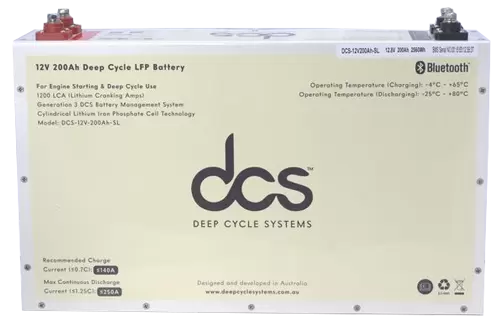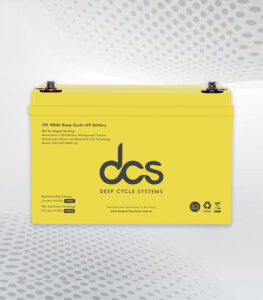Selecting an appropriate battery for your 4WD ensures optimal performance and reliability. AGM (Absorbent Glass Mat) and lithium batteries are two prevalent options, each with unique attributes and benefits. AGM batteries are known for their dependability and ability to provide high currents, making them a solid choice for various automotive applications. On the other hand, lithium batteries, including Lithium Starter Battery, offers a modern solution with a higher energy density and a lightweight design. These features make them particularly attractive for enhancing 4WD performance. Understanding each battery type’s key differences and advantages will help you make a well-informed decision tailored to your needs.
Understanding AGM Batteries
AGM batteries employ a specialised technology where the electrolyte is absorbed into a glass mat, making them spill-proof and maintenance-free. Commonly utilised in automotive settings, they are appreciated for their ability to deliver high currents. For 4WD enthusiasts, these batteries are robust and well-suited for off-road excursions.
Their design makes them less susceptible to vibrations and impacts, an essential feature for rugged terrains. However, one must consider their weight, as AGM batteries are typically heavier than lithium alternatives, which might impact vehicle performance and fuel efficiency.
Understanding Lithium Batteries
Lithium batteries, including lithium-ion and lithium starter batteries, represent a contemporary approach to energy storage. With a higher energy density, they can store more power in a smaller, lighter package, a significant advantage for 4x4s. These batteries are also renowned for their extended cycle life, making them ideal for frequent use and demanding terrains.
Additionally, lithium batteries boast quick charging times and advanced charging technologies, integrating smoothly with modern systems. Their consistent performance across a more comprehensive temperature range and lightweight nature make them preferred for enhancing 4×4 capabilities and fuel efficiency.
Performance Evaluation
Performance differences between AGM and lithium batteries can significantly impact your 4WD experience. AGM batteries excel in delivering high currents, making them reliable for sudden power needs. However, their performance can drop in extreme temperatures, potentially affecting your 4WD’s efficiency in harsh conditions. Lithium batteries, on the other hand, maintain stable performance across a broader temperature range, offering an edge in diverse climates.
Lithium batteries charge more quickly, ensuring your 4WD is ready for action with minimal downtime. This fast-charging capability can be especially beneficial during extended off-road trips where quick turnaround times are essential. Their lightweight design also improves fuel efficiency and handling, enhancing your overall driving experience. Both options offer distinct advantages, making it crucial to weigh these factors based on your 4WD’s requirements and driving environment.
Considerations of Weight and Size for Li Ion Car Battery
Lithium batteries are notably lighter and more compact compared to their AGM counterparts. This weight reduction is particularly beneficial for vehicles like 4WDs, where every kilogram counts. The lighter battery improves fuel efficiency by reducing the overall weight the car needs to carry. Additionally, the compact nature of lithium batteries allows for better utilisation of space in the vehicle, freeing up room for extra gear, tools, or modifications essential for off-road adventures.
Enhanced Handling and Performance
Performance is paramount in 4WD vehicles, especially in challenging off-road conditions. Lithium batteries are crucial in enhancing handling due to their reduced weight. With less weight over the vehicle’s suspension system, handling can be improved, providing better stability and control when navigating rough terrains. This can be particularly important during high-impact driving situations, such as climbing steep inclines or navigating uneven ground, where the vehicle’s performance can be hindered by excess weight.
Fitting and Installation Considerations
While lithium batteries offer numerous benefits, ensuring proper fitting and installation in your 4WD is essential. Since lithium batteries are more compact, their dimensions may differ from traditional AGM batteries. Before purchasing, it’s necessary to check the battery compartment in your vehicle and ensure that the Li Ion Car Battery fits securely. Also, proper installation is crucial to avoid any potential movement that could cause driving issues, especially in off-road conditions. Ensuring the battery is securely fastened will guarantee reliability and safety during your adventures.
Longevity and Durability
Lithium batteries, known for their cutting-edge technology and durable design, typically offer a significantly longer lifespan than AGM batteries. While AGM batteries generally provide reliable service for around three to five years, lithium batteries can endure for a decade or even longer with proper care and maintenance. This impressive longevity is due to their advanced chemistry and construction, which makes them highly resilient.
Factors such as the number of charge cycles, proper charging practices, and environmental conditions, including extreme temperatures, can influence the actual lifespan of these batteries. For avid 4WD adventurers, the extended durability of lithium batteries means fewer replacements and reduced long-term costs.
Charging Properties
Charging times differ between AGM and lithium batteries, with lithium options charging considerably faster. This rapid charging capability is advantageous for 4WD enthusiasts requiring quick turnarounds during extended trips. Moreover, lithium batteries often incorporate advanced charging technologies, enabling seamless integration with modern charging systems.
AGM batteries, while dependable, typically require more extended periods to reach full charge, which could be a drawback in situations demanding prompt readiness. It is essential to check the compatibility of these batteries with your vehicle’s existing charging infrastructure to ensure optimal functionality. Proper charging practices are crucial to maintaining battery health and longevity.
Financial Considerations
Lithium batteries generally have a higher upfront cost than AGM (Absorbent Glass Mat) batteries. However, their long-term value becomes clear when considering their extended lifespan and greater efficiency. Lithium batteries are designed to last significantly longer than AGM batteries, often outlasting them for several years. This means fewer replacements and less frequent maintenance, lowering lifetime costs.
Over time, the savings on replacement and maintenance costs can outweigh the initial price difference, making lithium batteries a more economical choice in the long run.
The Lifespan Advantage of Lithium Batteries
One of the main benefits of lithium batteries is their longer lifespan. While AGM batteries may require replacement every 3-5 years, lithium batteries typically last 10 years or more, depending on usage and maintenance; this durability makes them a more cost-effective option for those looking to avoid the hassle and expense of frequent battery replacements. The longer lifespan of lithium batteries reduces the need for additional investments in new units, which can be a significant financial burden with AGM batteries.
Fuel Efficiency and Weight Savings
In addition to their longevity, lithium batteries offer weight savings over AGM batteries. Lithium batteries are lighter, which can result in improved fuel efficiency in vehicles, especially in electric and hybrid models. The reduced weight means the car doesn’t have to work as hard to move, leading to lower fuel consumption. These savings can add up over time, making the higher initial cost of lithium batteries more justifiable by offsetting fuel costs.
Environmental Considerations for Purchasing Lithium Cranking Battery for 4wd
When evaluating the environmental implications of Lithium Cranking Battery For 4wd, it’s essential to consider both benefits and drawbacks. Lithium batteries typically exhibit a lower self-discharge rate and superior energy efficiency, which can contribute to reducing overall emissions. This makes them a more environmentally friendly option during their operational life.
However, the extraction and processing of lithium can have significant environmental repercussions, including habitat disruption and resource depletion. In contrast, AGM batteries are more accessible to recycle, reducing the long-term ecological footprint associated with disposal. Nevertheless, their lower energy efficiency means they may offer differential reductions in emissions over their lifespan.
Safety Issues
Safety is a critical factor when choosing a battery for your 4WD. AGM batteries offer a spill-proof design, which reduces the risk of acid leaks and makes them safer to handle and install. However, they can emit flammable gases during charging, necessitating proper ventilation and caution to prevent hazardous situations. Although generally considered safe, lithium batteries need careful management to avoid risks like thermal runaway, which can occur if the battery overheats or is damaged.
Ensuring the battery management system (BMS) functions correctly is crucial to maintaining safety standards. Regular inspections and adherence to manufacturer guidelines for installation and maintenance are essential practices for AGM and lithium batteries.
Experiences and Feedback from Users
Experiences from 4WD enthusiasts highlight a range of perspectives regarding both AGM and lithium batteries. AGM batteries are often commended for their robustness and ability to deliver high currents, making them dependable in various driving conditions. Many users appreciate their spill-proof nature and the fact that they require minimal maintenance. Despite being heavier, they are favoured by those who prioritise reliability and cost-effectiveness. Users frequently mention their satisfactory performance during off-road adventures, noting their ability to withstand the demands of rugged terrains without significant issues.
On the other hand, lithium batteries receive high praise for their advanced technology and lighter weight. Many 4WD users report noticeable vehicle handling and fuel efficiency improvements after switching to lithium options. Quicker charging times and extended lifespan are often cited as significant benefits, especially for those who embark on longer journeys and require efficient turnaround times. Enthusiasts also appreciate the consistent performance of lithium batteries across a broader temperature range, making them suitable for various climates and challenging conditions.
Feedback also indicates a preference for lithium batteries among those who frequently modify their vehicles, as the reduced weight and compact size allow for better space utilisation. Users who invest in lithium batteries generally acknowledge the higher initial cost but believe the long-term savings and performance enhancements justify the expenditure.
Overall, while both battery types have their dedicated followers, the choice often comes down to individual preferences and specific usage requirements, with lithium batteries gaining popularity for their modern advantages and AGM batteries maintaining a loyal user base for their proven dependability.
Summary and Advice
Selecting the correct battery for your 4WD requires a balance of various factors. Lithium batteries offer modern advantages, such as lighter weight, higher energy density, quicker charging times, and extended lifespan. These benefits translate to improved handling, better fuel efficiency, and fewer replacements over time, making them ideal for those who embark on longer journeys and frequently modify their vehicles. However, the initial cost can be higher, and environmental concerns related to lithium extraction should be considered.
AGM batteries, while heavier, provide dependable performance and are robust enough to handle rugged terrains. They are spill-proof and require minimal maintenance, making them a reliable and cost-effective choice in many scenarios. Their ability to deliver high currents can be crucial for sudden power needs, especially in off-road conditions.
Ultimately, the decision hinges on your needs, including driving habits, environmental considerations, and budget. Both options have distinct advantages, so weigh these factors carefully to ensure your 4WD has the most suitable battery for your adventures.
Conclusion
Choosing between AGM and Lithium Starter Battery for your 4WD depends on several factors, including driving conditions, budget, and long-term goals. Lithium batteries offer significant advantages in weight, charging speed, and longevity, making them ideal for frequent off-road adventurers seeking enhanced performance and efficiency. On the other hand, AGM batteries remain a reliable and cost-effective option, especially for those prioritizing dependability and ruggedness. By understanding your specific needs and evaluating the strengths of each type, you can select the best battery to power your 4WD and enhance your off-road experience.
FAQ’s
1. Which battery lasts longer, AGM or Lithium Starter Battery?
Lithium Starter Battery typically lasts longer than AGM batteries, with lifespans of 10 years or more, compared to 3-5 years for AGM batteries. Lithium’s advanced technology offers more charge cycles, making it the better choice for those seeking longevity and fewer replacements.
2. Are lithium batteries worth the higher upfront cost?
Yes, while lithium batteries come with a higher initial cost, they offer substantial long-term value. With longer lifespans, better fuel efficiency, and faster charging times, the long-term savings in replacements and maintenance make lithium batteries a cost-effective choice in the long run.
3. How does weight of Lithium Cranking Battery for 4wd impact the performance of my 4WD?
The lighter weight of Lithium Cranking Battery for 4wd significantly improves your 4WD’s fuel efficiency and handling. Reducing vehicle weight allows for better stability, enhanced suspension performance, and overall improved driving experience, particularly on rough terrains where agility and control are crucial.
4. Can AGM batteries handle extreme off-road conditions?
Yes, AGM batteries are known for their reliability in extreme conditions. They perform well in rugged off-road environments, with their spill-proof design making them resistant to vibrations and impacts. They are a trusted choice for users prioritizing dependability in harsh driving conditions.
5. What safety precautions should I take with AGM and lithium batteries?
For AGM batteries, ensure proper ventilation during charging to avoid the emission of flammable gases. Lithium batteries require careful handling to prevent overheating or thermal runaway; a functional battery management system (BMS) is crucial. Always follow manufacturer guidelines for installation and maintenance to ensure safety.
| Related Business Listings |
| Contact Directory |
| Local Business Profiles |




